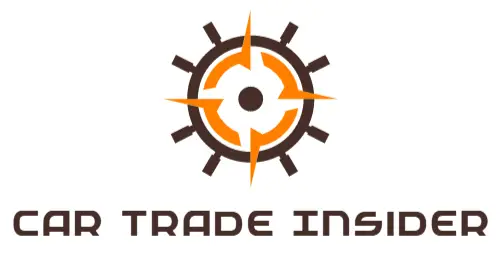Are you considering trading your car with someone? If so, you’re not alone. Many people find themselves in a situation where they want to upgrade their vehicle for various reasons.
It’s not as complicated as it may seem, but there are some important steps and considerations to keep in mind to ensure a smooth transaction.
In this guide, we’ll take you through the process of trading cars with a private party and explore some essential trading tips that will help you make the most out of your car exchange. So, fasten your seatbelts, and let’s dive into the world of car trading!
Is Trading Your Car with a Private Party Possible?
Trading or selling your car to a dealership is straightforward, but trading with another private party is also possible. Trading with a private party can be beneficial as both parties share the same interest in getting a good deal. However, certain factors need to be considered.
State Variations
When trading cars privately, it’s crucial to be aware of state regulations. Laws related to car sales vary from state to state, so it’s important for both the buyer and seller to check with their local Department of Motor Vehicles (DMV) to understand the specific requirements.
Responsibilities of Buyers and Sellers
The responsibilities of buyers and sellers also vary by state. For example, in Wisconsin, sellers are not required to provide notification, while in California, sellers must notify the DMV within five days of the sale. Understanding these requirements is essential to protect both parties from liability.
Insurance and Financial Responsibility
Most states mandate car insurance or some form of financial responsibility. In some cases, insurance must be obtained in the state where the car is transferred. Be sure to check your state’s requirements and provide proof of insurance when trading your car.
Trading a Car to a Private Party
Trading with a private party can be a bit complex when it comes to paperwork. In some states, both parties may need to complete a “Notice of Transfer and Release of Liability” form. This form updates the DMV records and relieves both parties of liability for their respective cars.
Trading a Car to a Private Party with an Existing Loan
If you still have a loan on your car, you can still trade it with a private party. However, you may need to inform the other party and conduct the transaction at your bank. The bank may require you to pay off the remaining loan balance before transferring the title but there are important considerations.
Positive vs. Negative Equity
Positive equity occurs when your car is worth more than the remaining loan amount. In this case, you can apply the positive equity as a down payment for your new vehicle, potentially reducing your financing needs.
Negative equity, on the other hand, means your car’s value is less than what you owe on the loan. In such cases, you’ll need to cover the difference, either by rolling it into a new loan or using personal funds.
Related: Do I need a physical title to trade in my car?
Tips on How to Trade Cars with Someone Succesfully
1. Determine Your Car’s Value
Before you even think about trading your car, it’s essential to have a clear understanding of its value. You can use online tools such as Kelley Blue Book and Edmunds or consult with professionals to estimate your car’s worth. Having a ballpark figure in mind will help you make informed decisions and avoid settling for less than your car is worth.
2. Be Prepared for Close Inspection
When trading cars, remember that you’re both a buyer and a seller. Expect the other party to inspect your vehicle as thoroughly as you inspect theirs. Be ready to answer questions about your car’s maintenance history, and any issues it may have, and be honest about its condition. Transparency can build trust and lead to smoother transactions.
3. Bring a Friend Along
Trading cars can sometimes be an overwhelming experience. Having a trusted friend by your side can make the process less intimidating. They can offer a second opinion, provide emotional support, and enhance your safety during meetings with potential buyers or sellers.
4. Trust Your Instincts
If something feels off during the negotiation or inspection process, trust your instincts and don’t hesitate to walk away. There are plenty of cars available for sale, and it’s better to be safe than sorry.
5. Stay Aligned with the Seller
Maintain open communication with the other party throughout the negotiation process. Avoid jumping ahead and committing to the deal prematurely. Keep your enthusiasm in check until both parties have reached an agreement.
6. Weigh the Pros and Cons
When considering a trade, make a list of the pros and cons of both cars involved. This will help you assess the potential benefits and drawbacks of the trade and make an informed decision.
7. Review the Paperwork
Before finalizing the trade, ensure that all the paperwork is in order. Verify that the title, registration, and any other documents are accurate and complete. Mistakes or discrepancies can lead to legal issues down the road.
Related Articles:
8. Know the Legal Rules
Different states may have specific rules and regulations regarding private-sale car trading. Research your state’s laws to determine if you need to pay sales tax or if there are any other legal requirements you should be aware of.
9. Timing Matters
Consider the timing of your car trade. Certain seasons or months may be more favorable for trading cars. For example, demand for convertibles tends to rise in the summer, while SUVs are in demand during the winter months. Timing your trade strategically can help you get a better deal.
10. Be Flexible
While it’s important to have standards, be open to negotiation. Sometimes, a potential trade partner may offer additional perks like accessories or services that can sweeten the deal. Be willing to adjust your expectations if the overall package is attractive.
Dealership vs. Private Trading
Once you’ve decided it’s time to part ways with your car, you’ll need to determine how to go about it. Two primary options are selling it privately or trading it in at a dealership. Each choice has its pros and cons.
Trading with a Dealership:
Trading in your car at a dealership can be a convenient and straightforward option. Best car dealerships manage the entire process, making it less time-consuming.
Pros of Trading In at a Dealership:
- Convenience: Dealerships handle most of the paperwork and logistics, making the process more straightforward.
- Variety: Dealerships often have a wide selection of new and used cars, providing you with various options for your trade.
- Trade-In Deals: Some dealerships offer promotions, bonuses, or trade-in specials that can increase the value of your trade.
Cons of Trading In at a Dealership:
- Lower Value: Dealerships may offer slightly lower trade-in values compared to private buyers to cover their expenses and potential profit.
- Less Control: You may have less control over the negotiation process, as dealerships often follow their pricing strategies.
Private Trading:
Selling your car privately offers the advantage of setting your desired price and having full control over the deal. However, it comes with potential downsides, such as haggling with buyers, dealing with tire kickers,
Pros of Selling Privately:
- Potential for Higher Value: Private buyers might offer a higher trade-in value since they avoid dealership overhead costs.
- Direct Negotiation: You have direct control over negotiations and can seek the best deal that suits your preferences.
- Personalized Transactions: Private trading allows for more personalized interactions and negotiations.
- No Fees: No middle person means no commission fees.
Cons of Selling Privately:
- More Effort: Private trading involves more effort in terms of advertising, arranging meetings, and handling paperwork.
- Security Concerns: Meeting strangers for car trades can be riskier, so safety precautions are essential.
FAQs
Is trading in my car always better than selling it privately?
Trading offers convenience, but selling privately might fetch a higher price if you’re willing to invest time and effort in the process. It depends on your priorities.
Should I trade in my car if it needs minor repairs?
If the cost of repairs is significantly less than the trade-in value increase, fixing minor issues can be a cost-effective choice. Discover how repairing an AC can affect the value of a car”
When is the best time to trade in my car for maximum value?
The first half of the year tends to yield better trade-in values, but it also depends on the demand for your specific make and model.






